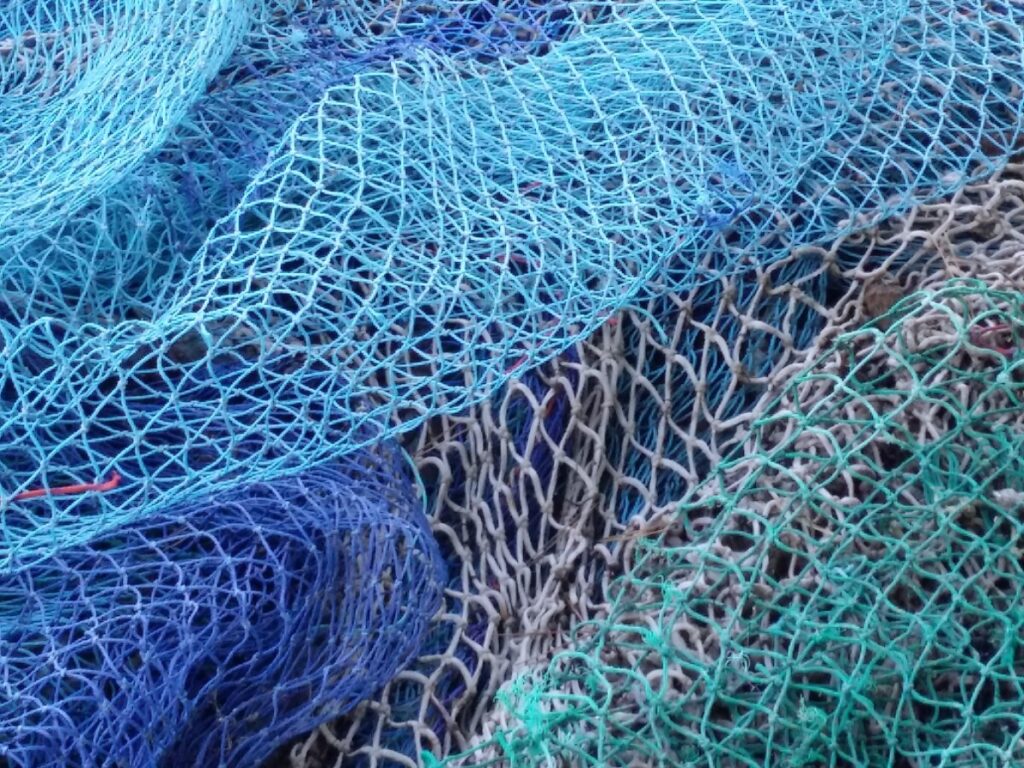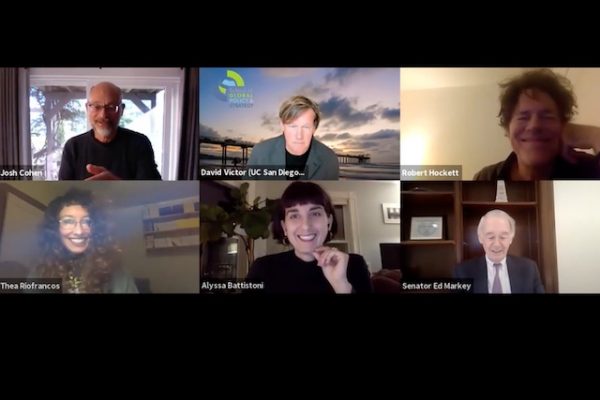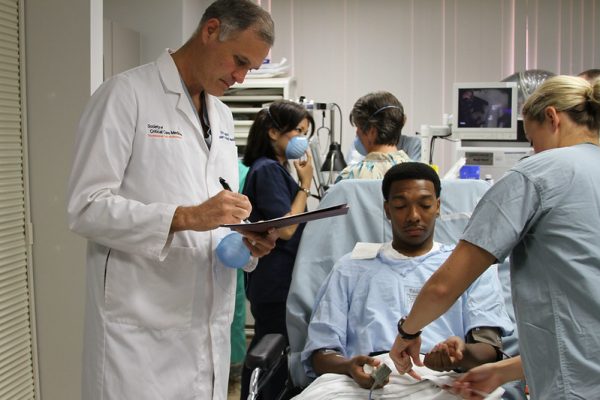I wonder if we could outgrow rope. Braided with blood, a tangled legacy. Could we evolve past nets of capture, the intersecting technology of getting and keeping. I’m asking for a friend: Vaquita, the smallest living cetacean, whom EcoWatch says is days away from extinction because of the pervasive use of gillnets where she lives. And I’m asking for the North Atlantic right whale, also very close to extinction, whose major cause of death is getting caught in ropes used by large fishing vessels in her range. Or being stabbed by their propellers.
Neither of these species is having problems reproducing. North Atlantic right whales actually have a lot of reproductive sex and even more social sex just because.
Throughout the entire period of the slave trade, the North Atlantic right whale was targeted and hunted. But no one is hunting them now. The opposite, in fact: recently, Joe Howlett, a lobsterman and member of a team of people who risk their lives trying to untangle these whales from the ropes that kill them, died in the process.
A deadly system doesn’t have to seem like it’s targeting you directly to kill you consistently.
Rather, the threat against the most critically endangered cetaceans on the planet (and most endangered marine mammals at this point) is an unintentional byproduct of fishing as usual. Could the large fishing boats in the Atlantic become mindful enough to sense and avoid an animal as big and slow moving as the North Atlantic right whale (which actually was named the “right whale” specifically because it was slow moving and large enough to easily hunt from large ships with the technology they had two hundred years ago)? To hear the industry tell it, it’s expensive and difficult. They say the necessary technology is years if not decades away. In other words, it may be available after the North Atlantic right whale is already extinct.
And what about the gillnets in the tiny range of the vaquita? They are already illegal, and the fishers who use them are impoverished people without other economic options at this time.
So Alexis, are you saying that to save these animals we have to not only abolish the commercial fishing industry, which is one of the major food sources on the planet, but also abolish capitalism itself this week so no one needs to use an illegal gillnet or starve?
In a word? Yes.
But maybe you already know something about this. About how a deadly system doesn’t have to seem like it’s targeting you directly to kill you consistently. How, for example, long after the era of photographed lynchings where picnickers sliced off body parts and kept them as keepsakes, a system can still cut off parts of you daily, steal parts of yourself that you need. Maybe you think this is not about you (if so, that’s a part that already went numb).
One female North Atlantic right whale was stabbed by a propeller as a baby and didn’t die until fourteen years later when she was pregnant. As she expanded to hold life, her wound reopened, got infected, and killed her. Or think of Punctuation (this is what the researchers who have been studying this whale for forty years call her), a grandmother North Atlantic right whale who died in the summer of 2019. She had given birth eight times, survived entanglement five different times, and had scars from multiple boat strikes and propellers. And at least three of her children died from entanglement before she died. Maybe you know something about what it means to bear the constant wounding of a system that says it’s about something else entirely. It might sound hollow to you too when you hear these deaths are not the point, that these deaths are just a byproduct that cannot be prevented for the sake of the system. Surely there must be some way to improve the system that already exists.
If we don’t end capitalism this week, it is because we are entangled, a reality that will continue to wound us after the vaquita and the North Atlantic right whale disappear off the face of the Earth.
I don’t think so. Where are the people who argue that commercial fishing is necessary for human life when the same economic system pollutes that exact food supply and raises carbon to levels that are killing fish off already? None of these things can be separated from each other. We are all entangled. And the fact that entanglement is a slow death doesn’t make it any better; it in fact makes it more gruesome. And I mourn the parts of you that lost feeling today. I mourn the scars you will not notice until you have a reason to grow. I mourn the freedom you don’t know because these ropes have been here longer than you have been and, big or small, you can’t evade them.
If we don’t do it, if we don’t end capitalism this week, it is because we are entangled, a reality that will continue to wound us after the vaquita and the North Atlantic right whale disappear off the face of the Earth. So you don’t have to save the whales, but at least take a look at the ropes. Acknowledge what has already been severed, the costs of this system as usual. At least take a moment to imagine how you would move if we weren’t all caught up in this. Could we do that? I’m asking for myself. And if you can at all feel these last two sentences, then maybe it’s not impossible: I love you. You deserve to be free.
The striped dolphin (Stenella coeruleoalba) got sum to say. She’s sick and tired. Of being sick and tired. She’s been dealing with cycles of viruses that kill her species by the thousands and that are recurrent in the Atlantic, Pacific, and Mediterranean. A social, deep-water dolphin, the striped dolphin is vulnerable to cetacean disease outbreaks. If pilot whales have it, striped dolphins will get it. Researchers don’t know the exact cause of the virus yet, but it killed a thousand dolphins in the Mediterranean Sea from 1990 to 1992, and came back in 2007 and again in 2019. One factor that I’m sure doesn’t help is the pollution of the striped dolphin’s habitat.
These dolphins struggle to breathe, they swim in strange circles. They end up far off course in a place that can’t sustain them. Do you know something about this? I too have been moving in circles, confused. I too have been struggling to breathe.
For example, right now in Greece, oil companies are scrambling to drill in marine-mammal protected areas, namely the deepest area of the Mediterranean Sea, where the striped dolphins live. A conservative (but not conservationist) Greek government that sees ocean drilling as the solution to all of Greece’s economic problems is welcoming even the most reckless oil drillers to its shores. Of course, these politicians are not talking about the major potential costs of even a small oil spill in their region, not only for the marine mammals who live there, but also for the government itself and Greece’s own tourism industry. I am writing this in solidarity with the Greek activists who are currently using music and community education to raise awareness and stop offshore drilling speculation.
Because I know what it feels like to be sick of systemic oppression and its cycles of extraction. The virus impacting these dolphins presses on their lungs, their brains. They struggle to breathe, they swim in strange circles. They end up far off course in a place that can’t sustain them. Do you know something about this?
I too have been moving in circles, confused. I too have been struggling to breathe. I too have wondered how I got so far from what my body and spirit need. So many of us are dizzy and labored, bewildered and estranged. So what would I say if I were a striped dolphin?
We are living in a world off course. And the pressure in your lungs is urgency.
I love you. And even on your sickest, saddest day, you deserve an ocean as blue as your name. You deserve a safety as deep as your need. You deserve food, community, school, and home. And you were not wrong to associate with your kindred. And you were not wrong to breathe loud about what you believed. And the dizziness you feel is justified. We are living in a world off course. And the pressure in your lungs is urgency. We have to learn the language of this air. We are sick of these tired cycles of economic vulnerability, resource grabs, and waste and harm spiraling down. We are ready to breathe differently. And evolve.
“End Capitalism” is excerpted from Undrowned: Black Feminist Lessons from Marine Mammals by Alexis Pauline Gumbs (AK Press 2020).








